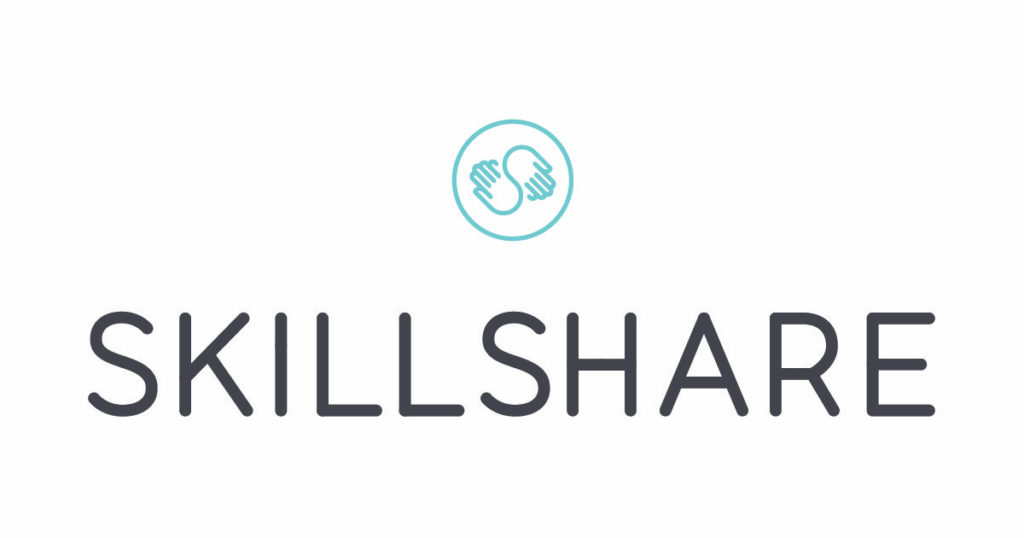For many, last year was a difficult year not only mentally and physically, but also financially. Between layoffs and shutdowns, people across the country were finding themselves without a paycheck for an unknown period of time.
Now that we've turned a corner in 2024, the economy is slowly beginning to rebalance and personal finances are building back up. If you find yourself with surplus cash, you may want to consider investing some of the funds into your future.
While investing can be a scary deep end to jump into, it doesn’t mean you can’t start small. Even with $700, you can put it towards long-term investment strategies. Here are 13 of my latest strategies and avenues on how to invest a sum of money that will benefit you in the long run.
1. Discover Opportunities in Alternative Strategies
Investing $700? Then you should dig into alternative investments that everyone should know.
Alternative investments are any asset class that is not a traditional investment, such as stocks, bonds, or cash. This can include things like real estate, private equity, art, and more.
There are a few reasons why you might want to consider investing in alternatives. First, they can help you diversify your portfolio. By including assets that don't move in tandem with the stock market, you can reduce your overall risk.
Second, alternative investments often have the potential to generate higher returns than traditional investments.
Finally, alternative investments can provide additional income in the form of dividends or interest payments. This can help you reach your financial goals sooner.
Some popular alternative investments include:
Vint: Vint is the ideal way for beginner investors to get their feet wet in alternative assets. You can invest in shares of fine wines from around the world starting with as little as $25, and there are no annual fees or accreditation requirements.
Vint offers a user-friendly investment platform for purchasing shares in high-quality wines, making it easy to build a diversified portfolio without extensive knowledge of the wine market. It is an ideal choice for newcomers to fine wine investment due to its simplicity and accessible interface.
2. Invest in Exchange Traded Funds (ETFs), Mutual Funds, or Index Funds
The stock market can be a financial goldmine if you have the knowledge and resources to make smart investments. Especially with $6 00, it can be the perfect amount to get you on the front foot.
Exchange Traded Funds (ETFs) are one example of an investment that you can make strategically. An ETF is a basket of securities exchanged on the market, just like a stock.
Real-world examples include investing in bond ETFs and currency ETFs that constantly fluctuate. The beauty of investing in these is having access to many stocks across various industries as well as low expense ratios and fewer broker commissions.
The same goes for both mutual funds and index funds. Handled by a professional broker, putting a grand into these assets is typically the best “bang for your buck.” While a mutual fund aims to beat a given stock market index, an index fund seeks to match an index and grow from there.
While they might be different in strategy, they are both great options to research as you look into the market. Read more about ETFs, mutual, and index funds here.
3. Open a High-Yield Savings Account (HYSA)
Saving money is important at any stage of your life and investing your money into a savings account can be a smart move. Especially as the competition surrounding saving rates and online banking has heated up over the past few years.
A high-yield savings account in particular, which has become increasingly popular, is a type of account that pays 20-25x more savings and interest rates than a standard savings account. This means you can earn money on your sum by having it simply sit in your account and collect interest!

The reason many have turned to these types of accounts is the ease in making transfers between checking accounts and savings accounts. Institutions offering HYSAs are often a one-stop shop for many people in terms of having all accounts in one place.
The simplicity of e-transferring funds between is as effortless as the interest you are gaining in your account. If you choose to use $700 towards an HYSA, be sure to research requirements for accounts before you make a decision.
Some frequently asked questions are: Will that amount be enough to open one?, What is the minimum balance required for the account?, etc. These kinds of accounts can be the perfect investment as a rainy day savings account.
Some savings accounts that I would recommend are Aspiration, Axos Bank, CIT, and SoFi. You can see the latest APY's in the table below:
|
APY: 5.00%
|
APY: 4.65%
|
APY: 4.60%
|
APY: 4.50%
|
APY: 4.40%
|
|
Minimum to Earn APY: $5,000
|
Minimum to Earn APY: $100
|
Minimum to Earn APY: $1
|
Minimum to Earn APY: $100
|
Minimum to Earn APY: $0
|
|
Bonus: N/A
|
Bonus: N/A
|
Bonus: $300
|
Bonus: N/A
|
Bonus: N/A
|
4. Open a Robo-Advisor Account
Financial technology (fintech) is a tool that every person investing their money should be keen to use. If you have $700 and you’re looking for a solution that can help you with an investment strategy, look into opening a robo-advisor account.
If you’re unfamiliar with these sorts of accounts, they are AI-driven, algorithmic-based digital platforms that provide financial advice, trends, and information that can help out investors.

The best robo-advisors like Acorns can take care of many of the tedious tasks that you would normally work with a normal advisor on, such as account management, goal setting, and portfolio management.
Since these kinds of accounts require little to no fees and can provide a plethora of services, taking a chunk of your $700 sum and putting it toward this should be a no-brainer investment. If you’re looking for a low-risk and high-reward investment, this kind of account can do wonders for you as you navigate your financial journey throughout life.
With Acorns, you can easily invest your spare change. Anyone can “squirrel” away some money and become an investor with Acorns. Enjoy a $20 welcome bonus when you open a new Invest account and set up recurring investments.
5. Buy Individual Stocks
For the most simple kind of investment that has to do with the market, buying individual stocks is definitely the route to go. While this can be the riskiest investment since many decisions are made on your own, it can also be the best way to turn $700 into tens of thousands of dollars.
If you have a strategic financial mindset, you should do some research about different small investment ideas and the best practices for you. Start with ensuring that you are financially stable enough to be making stock investments.
This means having minimal debt and paid off credit cards. Then, look into different brokers online that can help you buy stocks. Each platform will have different pricing packages and fees to make orders.
Finally, the easy part is placing stock orders! Fund your account with your $700 investment and get to work. Remember that the market is only open Monday to Friday, everyday from 9:30 am to 4 pm Eastern Time. Make sure you are prepared to get your orders in during that active window.
Be sure to keep track of your stocks as well by checking them frequently. Try not to get too emotionally invested in the ups and downs of your certain stocks. Just stay knowledgeable about how they are performing so you can make smart choices on when to buy more or sell.
Robinhood has commission-free investing for stocks, options, ETFs, crypto, and tools to help shape your financial future. Sign up and get your first stock worth between $5 and $200, free.
6. Buy Cryptocurrencies
If there’s one trend from the pandemic that has exploded, it’s the rise in cryptocurrencies. Most famously of those include Bitcoin, Ethereum, and Dogecoin have made the front pages of the press over the past year, these forms of currency are digitally encrypted forms of payment that can be used to buy goods and services online.
While each kind of cryptocurrency has a price associated with the currency, these currencies work similarly to stocks in that they rise and fall.
This is how a small investment can become profitable. As supply and demand shift, these cryptocurrencies and more businesses begin to accept them as a form of payment in the years to come. It's also easy to find the best places to buy Bitcoin and other crypto exchanges such as Coinbase and TradeStation Crypto.
Being ahead of the game before this practice becomes commonplace in society, can score you some extra spending cash. There are over 4,000 cryptocurrencies out there right now and investing in the next big thing could score you a fairytale kind of come-up.
|
Fees:
Trading fees: 0.4% Maker Fee / 0.6% Taker Fee
|
Fees:
Trading fees: None
|
Fees:
Trading fees: Flat 0.9% fee for stablecoins, 1.5% for other cryptos *Kraken Instant Buy
|
|
MMG Rating:
4.7
|
MMG Rating:
4.5
|
MMG Rating:
4.5
|
|
Pros:
|
Pros:
|
Pros:
|
|
Cons:
|
Cons:
|
Cons:
|
- Offers access to more than 200 cryptocurrencies
- Low minimum to fund account
- Quick crypto withdrawals
- Higher fees than other cryptocurrency exchanges
- No fees for crypto trades
- Convenient if you already have a Robinhood brokerage account
- Comparatively fewer cryptocurrencies offered
- No crypto-to-crypto trading
- Advanced features on Kraken Pro, including margin trading
- Great customer service
- Low Bitcoin (BTC) withdrawal fees
- Not available in all 50 states
- Crypto staking no longer available in US
Related: 8 Best Crypto Savings Accounts
7. Invest in Real Estate (REITs)
One of my favorite strategies for investing money right now is in real estate investment trusts (or REITs). What are these you may ask? These are companies that own massive amounts of real estate and properties all over the world. From houses to apartment complexes, warehouses, data centers to medical buildings, real estate conglomerates are booming right now as life returns to normalcy.
Since many people are returning to work and/or searching for a new place to live, the real estate industry is extremely active right now, which means these trust companies are turning a pretty penny. The way investors make money is simply when these companies make money! Dividends are distributed based on the income they make from leasing space and collecting rent.
It’s really that simple. These companies can be found on main stock exchanges and invested in that way or brokers can help investors find REIT mutual funds or ETFs too. You can get access to real estate investments by using apps like the ones in the table below that let you invest in REITs and more.
|
MMG Rating:
4.5
|
MMG Rating:
5.0
|
MMG Rating:
4.5
|
Real estate investing not your thing? Other smart ways to invest include:
- Acorns: Open a new Acorns account and earn a $10 credit. It’s that simple — no minimum deposit or balance is required. You’ll receive the sign-up bonus credit after completing your account registration.
- Masterworks: You own shares of Apple, Amazon, and Tesla. Why not Banksy or Andy Warhol? Their works’ value doesn’t rise and fall with the stock market. And they’re a lot cooler than Jeff Bezos.
- Vint: Vint is the ideal way for beginner investors to get their feet wet in alternative assets. You can invest in shares of fine wines from around the world starting with as little as $25, and there are no annual fees or accreditation requirements.
8. Pay Off Liabilities & Invest in Future Benefits
Compiling debt is something that almost everyone experiences at some point in their financial journey. If you find yourself falling behind or feeling stressed about your finances, paying off your debt by using debt reduction apps and investing in your future is a great way to make sure it doesn’t happen again.
Start with looking backward and focusing on the things you’ve spent money on that need to be paid for now. For example, credit card debt and auto loans are the two major avenues you should look to pay off before moving onto bigger ventures such as your mortgage and student loans. Since your credit score (which allows you to have more financial freedom) weighs heavily on the two former factors, these are the kinds of priorities you should be tackling first.
After you pay off the past, look to the future and find ways you can save $700 each month and in your everyday life so you’re not constantly catching up on payments. Some examples are as easy as using money saving apps or include purchasing a home warranty on kitchen appliances at a one-time fee in case they break (instead of paying a much heftier fee later) or staying up to date on your car warranty in case of any accidents and/or part malfunctions. These are simple gestures and investments you can make right now in your everyday life that will save you hundreds of dollars in the long run.
9. Try Peer-to-Peer (P2P) Lending
If you’re looking to go with a straightforward investing route with $700, look into trying out peer-to-peer lending. This eliminates the middleman of a financial institution. Connecting lenders with investors at the source, is a place you can get personal about money, stocks, and investments.
Because investors get better rates than typical banks, and lenders don’t have to worry about the financial institution’s cut being taken, it’s typically a win-win scenario for both parties. If you’re looking for a loan of some sort, this option can give you some of the best rates around. Be sure to do some research because even P2P lending websites take a fraction of the transaction as well.
10. Start a 529 College Savings Plan
Whether you’re a parent thinking about sending your child to college, or a prospective student yourself, setting yourself up properly for the financial aspect of school should be done early.
If you have $700 dollars handy, why not think about launching a savings plan to cover school? This kind of investment account can even offer tax benefits as well to qualified parents.
Similar to a Roth IRA, a 529 Plan works as a compounding account that can grow interest and “free money” over time. This is why it’s important to start early! Whether you want to start with one deposit of $700 or contribute a monthly amount to keep growing your total, it can only help before, during college when you’re paying it off, and after school as you continue to make payments.
As a cherry on top, most 529s don’t have any effect on financial aid eligibility so you don’t have to worry about that when it comes to applying to schools. If you’re a parent or a young adult, this kind of educational investment should be top of mind.
Related: 10 Best Debit Cards for Kids
11. Start Your Own Business
In 2021, everyone started a side hustle to make $700 fast, but what about turning a passion project into a full-scale business? This could be a smart way of investing $700 if you’re looking to make the leap with your specific hobby or idea.

Of course, there are many building blocks and steps you must go through before investing money into your idea, but remember that even a smaller amount of cash can get you jump-started with your business.
Some of my favorite ways this amount of money could be used include launching a website for your brand or even running some social media campaigns to get your business in front of the eyes of consumers.
As you start from square one, these efforts will allow you to grow and will turn your initial investment into profits for your business. For more inspiration on how to get started, check out this article about how to start a business from the ground up.
Related: 14 Best Banks for Freelancers
12. Invest In Yourself with Online Courses
Last but not least, investing in your own education is always something that will help you out over the course of your life.
Learning valuable skills about finance, literature, art, or any other interest you have can drive your own career and passions forward. It can also help you feel fulfilled and intelligent as you progress throughout your life.
Nowadays, there are so many inexpensive platforms that offer online courses to better your understanding of certain subjects. For example, LinkedIn Learning and Coursera are just a few examples that can teach you anything from financial literacy, to music production, to learning to speak French.
Don’t forget about online college courses as well! Tons of colleges and universities across the nation offer online opportunities that can kickstart a new degree or path in your life. Education is power!
13. Fund Your Individual Retirement Account (IRA)
Setting yourself up for a healthy financial future starts by thinking about yourself early and often. Whether you are young and just beginning your career or in the middle of it, opening up, and contributing to, an IRA account should be a top priority. These types of IRAs allow individuals to set aside tax-free money over time that can grow exponentially.
For many workers with either a 401K or Roth IRA—the two most popular types of retirement accounts—it is a wise option to contribute a portion of a paycheck each pay period in order to keep building the amount in the account over time.
If you decide to go the direct deposit route, or on the contrary, add to it when you prefer, it won’t hurt to have your money compounding for when you need it during retirement.
Consider splitting your $700 sum over time to take advantage of dollar-cost averaging, or even contribute in sums of thousands if you can at an early age. The quicker you start an IRA the better investment it will be later on in life.
Related: 12 Best Ways to Invest $500 (and Double It!)
How to Invest 700 Dollars: The Bottom Line
No matter where you decide to invest your $700, be sure to be strategic about if it’s the right thing and right time to put your money in that venture.
While money is temporary, time is forever, and investing properly in different avenues can make for an enjoyable and fulfilling life. Be sure to let us know how you’re investing too. What is your latest come-up? Let us know!
FAQs
If you are a beginner investor, it's important to find a reliable brokerage account such as Robinhood or M1 Finance in order to purchase fractional shares of companies you believe in. Your goal is to make a diversified portfolio when starting with smaller amounts of money to invest. Brokerages like Robinhood do not have any account minimums and they start you off with $225 in free stocks to get started. You can also check out real estate crowdfunding platforms like Arrived to start building passive income investments.
It really depends on your financial situation, but most critics say you should always have an emergency fund of six months' expenses. This is so you don't fall into a debt trap should any emergencies arise. Once you have an emergency fund set up you can start creating an investment portfolio that has low management fees and a long time horizon outlook over short-term investments.






















